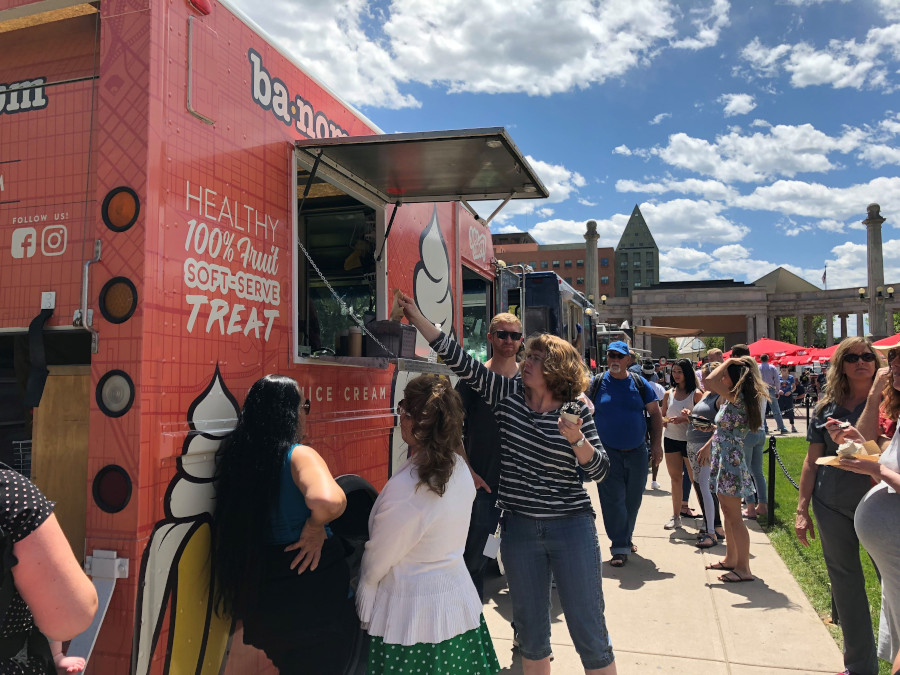
It’s estimated that 50% of small businesses fail in the first five years, and food trucks are no exception. The increasingly competitive market means vendors have more hurdles than ever to operate a successful business. Here are the top five challenges food truck owners face and how to overcome them.
Location
The real estate adage is location, location, location, and it also applies to food trucks. Vendors have to find a spot that consistently attracts diners without too many existing trucks. Some experts argue that choosing a proper location outweighs the importance of the menu.

Street parking presents the most straightforward and cost-effective option for food truck owners. You can park in a business district and find hordes of hungry business-people on their lunch break. Other ways to optimize location include attending festivals, breweries, farmer’s markets, bars, nightclubs, sporting events, college campuses, and food truck parks.
Red Tape
Having a unique idea for a food truck and selling meals sounds like fun. The legalese can present enough hurdles that many prospective vendors give up before they start. Here are some of the regulations you’ll need to accommodate when you open a food truck:
- A seller’s permit
- Head department certification
- Food safety training
- Liability insurance
- Mobile vending laws
- Vehicle permit and license
Obtaining these qualifications isn’t difficult by themselves. They take time, though, which takes away from other pressing matters, like building a menu or hiring staff. Each city, county, and state has distinct regulations, so you’ll face red tape regardless of where you live in the United States.
Kitchen Space or Lack Thereof
Kitchen space provides a natural constraint for food truck vendors. Every section of the kitchen layout needs to drive the operation toward complete efficiency; otherwise, it risks slowing down business. Combine multiple tasks into one to get more done with less.
A robust food processor lets you perform multiple functions in a compact area. The small machine can make everything from salsas to soups and whipped cream to winter smoothies. Other ways to make your kitchen space more efficient include improving organization, building vertically instead of horizontally, and purchasing ingredient bins.
The Goldilocks Menu
Most people start food trucks because they have a new idea that no one else is doing. That could mean serving Korean-Italian cuisine or turning traditional upscale dining into fast, casual meals. Even if you have a novel and delicious idea, you need a consumer base willing to try your food.
A Goldilocks menu is neither too boring nor too adventurous. The food should sit in the middle ground between familiarity and novelty, making it just right for prospective customers. Striking a balance can be challenging for food truck owners, especially if you do not have a background in the restaurant industry or hospitality.
Inclement Weather
Some parts of food truck vending are out of your control, including the weather. While you can nail your food truck’s business plan, uncooperative weather can present a financial setback. No one wants to eat soggy sandwiches in a muddy park, even if they’re amazing. The same goes for eating ice cream during the winter or having spicy ramen during peak summer months.
Always Be Ready
Food truck owners face a myriad of challenges, from inclement weather to red tape. While some of these hurdles are beyond your control, some ingenuity and thoughtful planning can circumvent these common issues. If you’re ready to start conquering these hurdles, check out the About Us page to learn how Truckster can bolster your bottom line.
If you are not yet a food truck owner and thinking of taking the plunge, check out our Food Truck Resources Page to see how Truckster can get you started on your own food truck success story!
